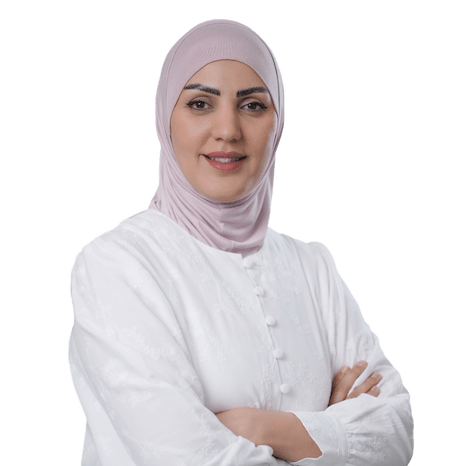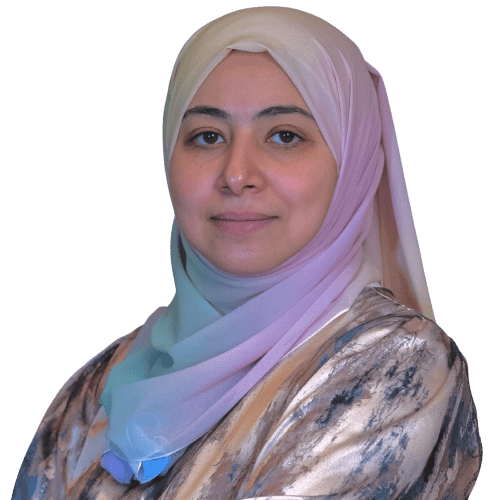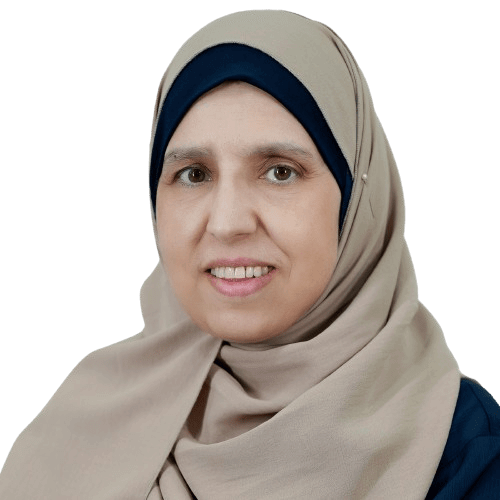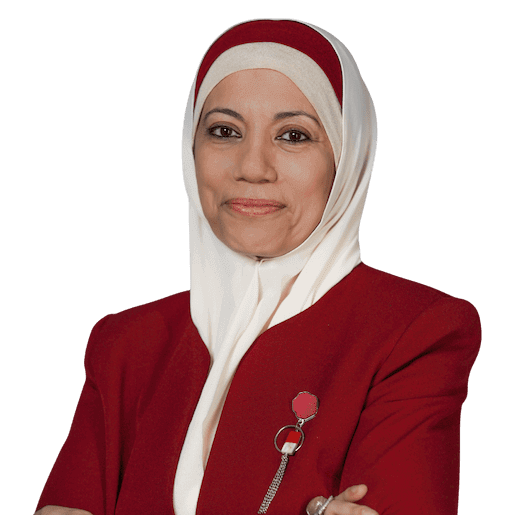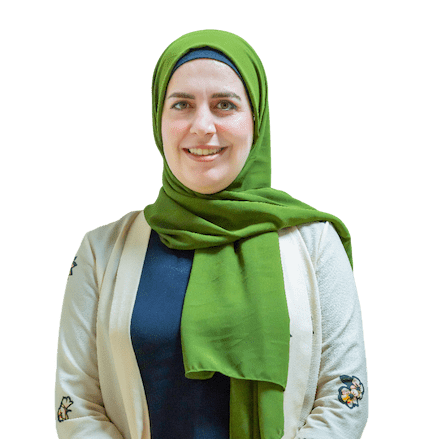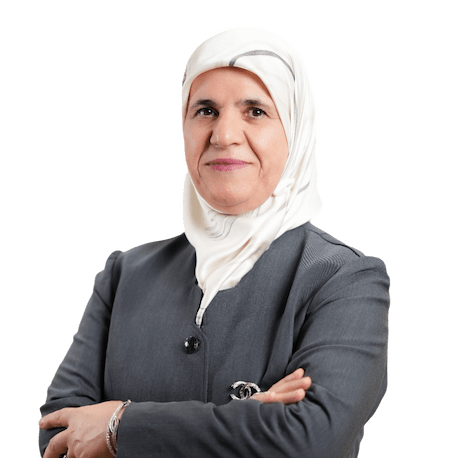Written By: Dr. Manar Jabbar Hussein
Dr. Manar Jabbar Hussein is a Specialist in Obstetrics and Gynaecology in the Department of Obstetrics and Gynaecology at the Al Barsha and Al Barsha South branches of Medcare Medical Centre.
Updated On:December 14, 2023
Read more.

What is Preeclampsia?
Around halfway through pregnancy, a hazardous medical condition called preeclampsia can develop (after 20 weeks). High blood pressure, protein in the urine, swelling, headaches, and impaired vision are all symptoms of preeclampsia. A healthcare professional must handle the treatment of this illness. After the delivery of your kid, it usually disappears.
Causes of Preeclampsia
When it comes to the causes of preeclampsia, nobody is certain for sure. Preeclampsia is thought to result from a placental health issue. Preeclampsia may result in a reduction in the blood supply to the placenta, which may cause issues for both you and the fetus.
Symptoms of Preeclampsia
Preeclampsia frequently affects adults without any symptoms. High blood pressure, protein in the urine, and water retention are some of the early symptoms of preeclampsia in people who have it.
Additional preeclampsia symptoms include the following:
- Headaches
- Vision that is blurry or light sensitivity
- Dark patches in your vision
- Stomach ache on the right side
- Edema
- Difficulty breathing or shortness of breath
It's critical to inform your healthcare practitioner of all of your pregnant symptoms. Unless their blood pressure and urine are examined at a prenatal appointment, many people are unaware they have preeclampsia.
Symptoms of severe preeclampsia may include the following:
- Emergency hypertension (blood pressure of at least 160/110 mmHg).
- Decreased liver or renal performance
- Lungs with fluid
- Low amounts of blood platelets (thrombocytopenia)
- Less urine being produced
If your preeclampsia is severe, you might need to give birth as soon as possible or be admitted to the hospital for careful monitoring. Your doctor may prescribe drugs to lower your blood pressure or aid in the fetus's lung development prior to delivery.
When to see a doctor for Preeclampsia?
Make sure you show up to your prenatal appointments so that your doctor can check your blood pressure. If you get severe headaches, blurred vision or other visual problems, severe abdominal discomfort, or severe shortness of breath, call your doctor right away or visit the emergency department.
It can be challenging to determine when new symptoms are just a normal part of being pregnant and when they could point to a significant issue, especially if it's your first pregnancy. Pregnancy issues include nausea, aches and pains, and headaches. Contact your doctor if your symptoms cause you any concern.
Preeclampsia Risk Factors
First-time mothers may be more likely to develop preeclampsia. The exact cause of preeclampsia in some patients is unclear to medical professionals. Some elements that could increase your risk include:
- History of diabetes, renal problems, or high blood pressure
- Expecting multiple babies
- History of preeclampsia in the family
- Autoimmune diseases, such as lupus
- Obesity
Preeclampsia Complications
Preeclampsia has the potential to be lethal to both the mother and the fetus if untreated. The most frequent issues before delivery are preterm birth, low birth weight, or placental abruption.
HELLP (Hemolysis, Elevated Liver enzymes and Low Platelets) syndrome can be brought on by preeclampsia. This occurs as a result of preeclampsia's effects on your liver, red blood cells, and blood clotting. Additional symptoms of HELLP syndrome include blurred vision, headaches, nosebleeds, and chest pain.
After giving birth to your child, you may be more susceptible to:
- kidney illness
- chest pains
- Stroke
- Preeclampsia in subsequent pregnancies
Preeclampsia Diagnosis
Preeclampsia is frequently diagnosed when your healthcare professional examines your weight growth, blood pressure, and urine during standard prenatal visits. Your healthcare professional might do the following if preeclampsia is suspected:
- Monitor the health of your kidneys and liver
- Do additional blood tests
- Consider collecting urine for 24 hours to check for proteinuria
- Examine the fetus' size and gauge the amount of amniotic fluid by using an ultrasound and other prenatal monitoring techniques.
There are two levels of preeclampsia: mild and severe. If you have high blood pressure together with high quantities of protein in your urine, you can be given the diagnosis of mild preeclampsia. If you have mild preeclampsia symptoms plus any of the following, you are likely to have severe preeclampsia:
- indicators of liver or kidney disease (seen in blood work)
- low level of platelets
- the liquid in your lungs
- dizziness and headaches
- loss of vision or the presence of spots in your vision
Preeclampsia Treatment
The ideal course of treatment for preeclampsia will be recommended by your healthcare practitioner. The severity of your preeclampsia and the stage of your pregnancy will largely determine the course of treatment.
Your baby will likely be delivered early if you are nearly at full term (37 weeks or more). You can still give birth vaginally, although a Cesarean section (C-section) may be advised in some cases. Your doctor may prescribe medicine to lower your blood pressure and aid with the development of the fetus's lungs until the baby can be delivered. Sometimes it is safer to deliver the child sooner than to take the chance of having a longer pregnancy.
You will be closely monitored if preeclampsia appears earlier in pregnancy in an effort to keep you pregnant longer and give the fetus more time to grow and develop. Further prenatal checkups will be scheduled for you, including ultrasounds, urine tests, and blood tests. Your blood pressure may need to be checked at home. If preeclampsia is identified as severe, you might stay in the hospital until your baby is born.
Your baby will need to be delivered if the preeclampsia progresses or gets more serious.
People with preeclampsia are frequently administered magnesium intravenously (straight into a vein) during labor and after delivery to stop the development of eclampsia (seizures from preeclampsia).
Preeclampsia Prevention
There are several actions that can be performed before and throughout pregnancy by those who are at risk to lessen their risk of preeclampsia. Preventative measures could involve the following:
- Managing your weight
- Managing your blood sugar and blood pressure
- Keeping up with exercise
- Getting sufficient rest
- Eating healthy food and abstaining from caffeine
References
Magee, L. A., Nicolaides, K. H., & Von Dadelszen, P. (2022). Preeclampsia. New England Journal of Medicine, 386(19), 1817-1832.
Ramos, J. G. L., Sass, N., & Costa, S. H. M. (2017). Preeclampsia. Revista Brasileira de Ginecologia e Obstetrícia/RBGO Gynecology and Obstetrics, 39(09), 496-512.
Redman, C. W., & Sargent, I. L. (2005). Latest advances in understanding preeclampsia. Science, 308(5728), 1592-1594.
Roberts, J. M., & Gammill, H. S. (2005). Preeclampsia: recent insights. Hypertension, 46(6), 1243-1249.
Wagner, L. K. (2004). Diagnosis and management of preeclampsia. American family physician, 70(12), 2317-2324.
Meet our doctors from the Obstetrics & Gynaecology department
|
||||||||
|
||||||||
|
||||||||
|
||||||||
|
||||||||
|
||||||||
|
||||||||
|
||||||||
|
||||||||
|
||||||||
|
||||||||
|
||||||||
|
||||||||
|
||||||||
|
||||||||
|
||||||||
|
||||||||
|
||||||||
|
||||||||
|
||||||||
|
||||||||
|
||||||||
|
||||||||
|
||||||||
|
||||||||
|
||||||||
|
||||||||
|
||||||||
|
||||||||
|
||||||||
|
||||||||
|
||||||||
|
||||||||
|
||||||||
|
||||||||
|
||||||||
|
||||||||
|
||||||||
|
||||||||
|
||||||||
|
||||||||
|
||||||||
|
||||||||
|
||||||||
|
||||||||
|
||||||||
|
||||||||
|
||||||||
|
||||||||
|
||||||||
|
||||||||
|
||||||||
|
||||||||
|
||||||||
|
||||||||
|
||||||||
|
||||||||
|
||||||||
|
||||||||
|
||||||||
|
||||||||
|
||||||||
|
||||||||
|
||||||||
|
||||||||
Similar Posts
teleMEDCARE App
Download teleMEDCARE app from Google Play or App Store to connect immediately to Medcare doctors at a click of a button and without an appointment.

Home Services
We offer our patients a broad range of home health care services in the comfort of their own homes. Book an appointment for lab tests, vaccinations, nurses and physiotherapists.

Chronic Care
Know more about our Chronic Care Management Programme in partnership with Damana Saicohealth.

teleMEDCARE App mobile
Download teleMEDCARE app from Google Play or App Store to connect immediately to Medcare doctors at a click of a button and without an appointment.

Home Services
We offer our patients a broad range of home health care services in the comfort of their own homes. Book an appointment for lab tests, vaccinations, nurses and physiotherapists.

Spotii
We have partnered with Spotii to offer a more flexible way to pay - Pay over time for your purchase. No interest, no cost & no catch.

























